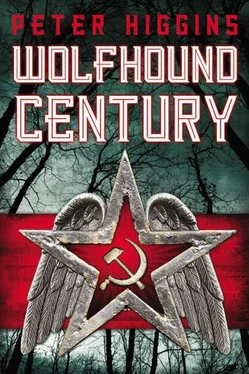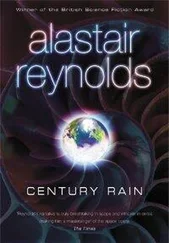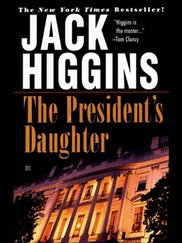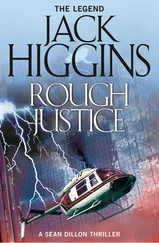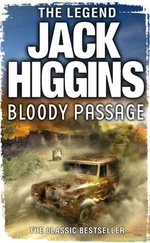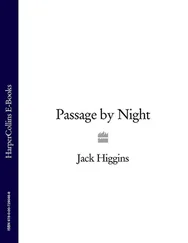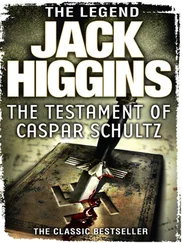Josef Kantor had a tiny office on the Ring Wharf, an unmarked doorway at the top of an iron staircase among mazy yards and warehouses, tucked away behind bales, vats, crates, barrels and carboys. It reeked of coal and tar and the spice and citrus smells of imported foodstuffs. There was room for a desk, a shelf for books and a small grate for a fire. Kantor had a portable printing press hidden under a blanket, and here he produced the leaflets he distributed along the wharves.
Every day, he walked among the steam-cranes and the rail trucks, the hammering, the waves of heat and showers of sparks, the supervising engineers with their oilskin notebooks, the collective industry of men. He watched them work on the naked, propped bodies of ships in dry dock and the towering frames of new ships rising. Day by day, immense steel vessels took shape out of chaos, bigger and stronger and more numerous than any before them. Speed . Power . Control . This is a new thing , thought Kantor, and wrote it in his leaflets. This is the future. It requires new ways of thinking: new philosophy, new morality, a new kind of person. All that is old and useless must be destroyed to make way.
Kantor slept on his desk, and on cold nights he built a wall of books around himself to keep out draughts. He’d learned the books trick at Vig, in a moss-caulked hut he shared with three families and the psychopath Vereschak. On winter nights in Vig, your breath iced on your beard while you slept. Vig had taught Kantor the luxury of being alone. He had learned the prisoner’s way of withdrawing inside himself and entering a private inner space the persecutors couldn’t reach.
Kantor’s life had been shaped by the dialectic of fear and killing: if you feared something, you studied it, learned all you could from it, and then you killed it. And when you encountered a stronger thing to fear, you did it again. And again. And so you grew stronger, until the fear you caused was greater than the fear you felt. It was his secret satisfaction that he had begun to learn this great lesson even before he was born. He was an aphex twin: a shrivelled, dead little brother had flushed out after him with the placenta and spilled across his mother’s childbed sheet. Before he even saw the light of day, he had killed and consumed his rival.
His father, the great Avril, hero of the Birzel Rebellion, had made his living packing herrings in ice. Avril Kantor loathed his work and himself for doing it. He came home stinking of brandy and fish. Josef heard the crude voice and saw his mother kicked across the floor. Felt the ice-hardened fist in his own face. He didn’t hate his father. He admired his power to hurt and the fear he caused. Only later, when he understood more, did he come to despise him for hurting only weakness, and sacrificing his own life in a grand futile gesture of revolt.
The Kantor family name earned Josef a place at the Bergh Academy. He was safe then from the fish wharves that ruined his father, but Bergh’s was a dull and vicious place. The masters spied on the students, searched their possessions, encouraged them to inform on each other. They beat him for reading prohibited books and lending them to the other boys. He studied the masters’ methods and hated the unimaginative, unproductive purposes to which they put their dominance. On the day he’d grown strong enough, he went to find the mathematics master alone, gripped him by the hair and cracked his face down onto his desk.
‘If I’m beaten again, I will come back and kill you,’ he whispered.
The teacher wore the bruise for a week. Josef was left alone at Bergh’s after that. He grew tall and lean and hard and full of energy. The first work the Lezarye Committee gave him was distributing leaflets to the railway workers. He was caught and badly beaten, while Anastas Bragin, Director of Railways, looked on, his face flushed rosy pink. Three nights later Josef Kantor climbed into Bragin’s garden with a revolver. It was late spring, and the sun was still in the sky though it was after eleven at night. The air in the garden was heavy with warmth and bees and lime blossom perfume. Bragin was working by lamplight at a desk in a downstairs room with the window open. Kantor trampled fragrant earth to get to the casement. He leaned in.
‘Remember me?’
He waited a moment before he shot Bragin in the head. He was seventeen then.
The police picked him up after the Birzel Rebellion. They wanted to know where his father was hiding. They broke his hands and burned his feet and kicked his balls until they swelled like lemons, but he didn’t tell them. They gave up in the end, and left him alone, and then he told them where his father was. The police forced him to watch his father’s execution. That was a pleasure. The icing on the cake. He was stronger than them all.
There was a rapping at the door of the office. Kantor swore under his breath. It would be Vitt. Vitt and the others. Vitt had said they would come, though Kantor had forbidden it. He hated people coming here. It compromised his security and invaded his private space. But they’d insisted. Vitt had insisted.
The knocking came again, louder. Determined. They were early.
‘Come in then, Vitt,’ he called. ‘Come in if you must. This had better be good.’
They crowded into the room. Kantor surveyed their faces. So many useless, vapid, calf-like faces. He’d told them to lie low, that was the proper way, but after a few days they’d got restless and suspicious. Too frightened of the police, not frightened enough of him. Vitt had dragged them along.
‘The banknotes are marked,’ Vitt was saying. ‘They’ve published the serial numbers in the Gazetta .’
‘The roubles go to the Government of Exile Within,’ said Kantor. ‘You know that. Their problem, not ours.’
‘They were waiting for us,’ said Lidia. ‘They knew we were coming. They knew when and where.’
‘And we lost Akaki,’ said Vitt. ‘Akaki was a good comrade.’
‘Deaths are inevitable,’ said Kantor. ‘Nothing worth having is got without great price. Be under no illusion, there is worse to come. Storms and torrents of blood will mark the struggle to end oppression. Are you ready for that?’
They stared at him sourly.
‘But—’
‘Is this a challenge, Vitt?’
Vitt stopped dead, his mouth open, the colour draining from his face.
‘No. No, Josef. I’m only trying to…’
Kantor looked around the room, fixing every one of them, one by one, with hard eyes. It was time.
‘Yes,’ he said. ‘They were waiting for us, and you know what that means, but none of you has the courage to say it. One of us is an informer.’
‘Maybe it was—’ Stefania began.
“Let’s go over it again,’ said Kantor. ‘You, Vitt, threw a bomb that did not explode, and then you, Vitt, ran like a hare.’
‘I—’
‘I smell you, Vitt. I smell treachery and lies. I smell the policeman’s coin in your pocket.’
‘No, Josef! Maybe it was Petrov? Where is he today? Has anyone seen him? It was Petrov !’
‘I smell you Vitt, and I’m never wrong. See how you crumble? This is how you crawled and squealed when the police took you. This is the traitor’s courage. This is the disease within.’
Kantor took the revolver from his pocket and held it out in the palm of his hand.
‘Who will do what must be done? Must I do it myself?’
‘Let me,’ said Lidia. ‘Please, Josef.’
Kantor gave her the revolver. Vitt upped from his seat and made for the door, but Stefania stuck out her foot. He fell on his face with a sickening slap.
‘Oh, no,’ he murmured. ‘No.’
Lidia put the muzzle to the back of his head.
Читать дальше
